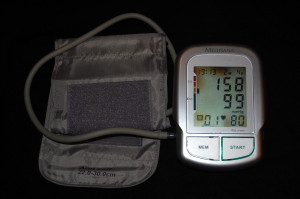If your HBP affects you in a way that you are unable to continue working and providing for yourself, you may qualify for SSD benefits. However, since the Social Security Administration does not have a specific listing under the Social Security listing of impairments HBP (Also known as Hypertension), your claim will be evaluated based on the criteria for the body systems that your HBP effects. Most often, HBP affects the cardiovascular system (heart), genitourinary system (kidneys), neurological system (brain), and your eyes.
 If the resulting harm is severe enough to qualify under the criteria listed in these sections, you may be able to receive SSDI.
If the resulting harm is severe enough to qualify under the criteria listed in these sections, you may be able to receive SSDI.
Blood pressure is the force at which the blood in your body pushes against the walls of arteries as the heart pumps. If this pressure is consistently too strong, it can result in damage to various areas of your body. Recent studies have shown that about 1 in 3 adults (about 76.4 million) in the United States has blood pressure levels that are considered too high. When the blood pressure level is too high, it is considered to be HBP or Hypertension.
Understanding Blood Pressure Numbers
Blood pressure levels are measured as systolic (blood pressure when the heart beats) and diastolic (blood pressure when the heart is at rest between beats). Usually, blood pressure numbers are written with the systolic number over or before the diastolic number, such as 115/65 mmHg. Below is a table of blood pressure levels and categorizations. Following is a list of blood pressure levels and how they are categorized medically.
- Normal: <120/<80
- Prehypertension: 120-139/80-89*
- High Blood Pressure Stage 1: 140-159/90-99*
- High Blood Pressure Stage 2: >160/100 or higher*
*If either of the numbers, top or bottom, fall into the provided range then you are considered to be at the respectful level.
Causes and Symptoms
The following are some common causes which, especially when combined, can lead to higher blood pressure.
- Taking in high levels of sodium
- Genetics: if one or both of your parents have had problems with HBP, you are twice as likely to encounter HBP problems than the rest of the population.
- Sometimes, abnormality in the arteries (either clogging, stiffness, or a lack of elasticity) can occur and drive up blood pressure. This is more common in people who are overweight, don’t exercise, and are older.
- Other causes which contribute to an increase in blood pressure, but are not enough to cause problems over a long period of time by themselves are sleep deprivation, stress, excitement, caffeine intake, etc.
Common Symptoms Include:
- Headaches
- Nausea
- Shortness of Breath
- Blurred vision
- A high risk of heart disease or stroke
- Confusion
- Lightheaded
Treatments vary with age and severity, but can be as simple as changing your diet or increasing your amount of exercise and as difficult as prescription regimens and hospitalization. If you have experienced severe hbp and are unable to work and support your family, contact our experienced Utah-based SSDI attorneys help you with your SSD claim.
Resources